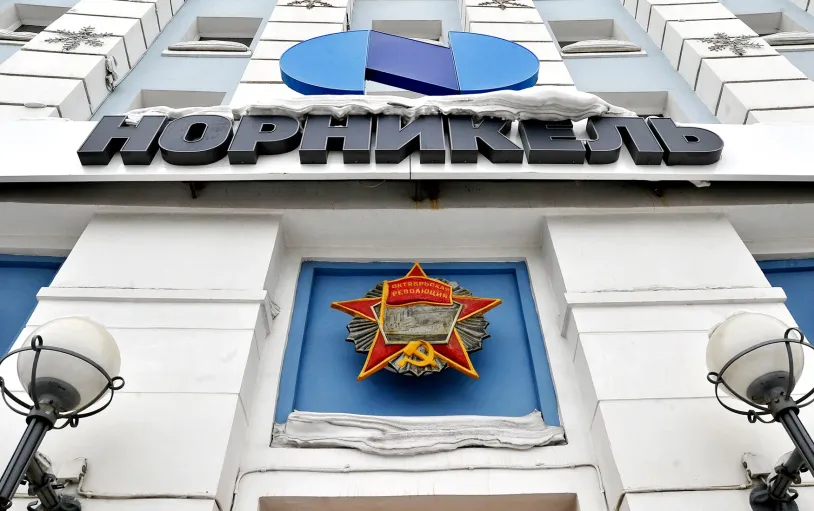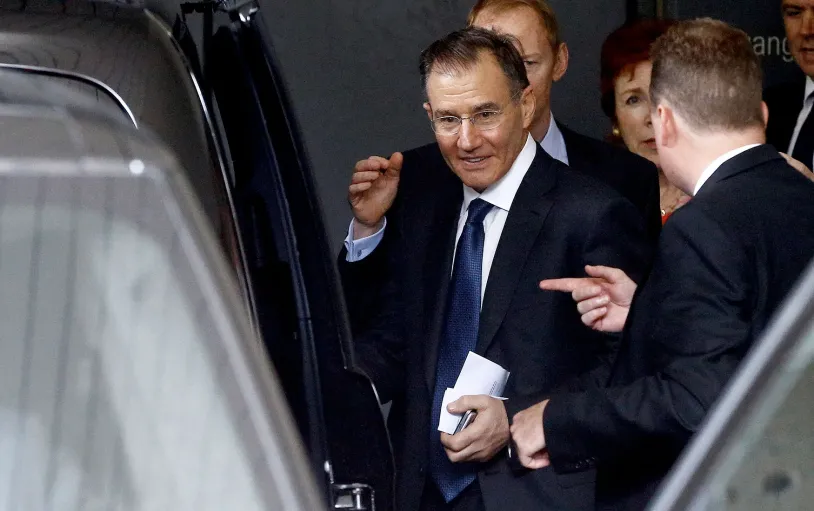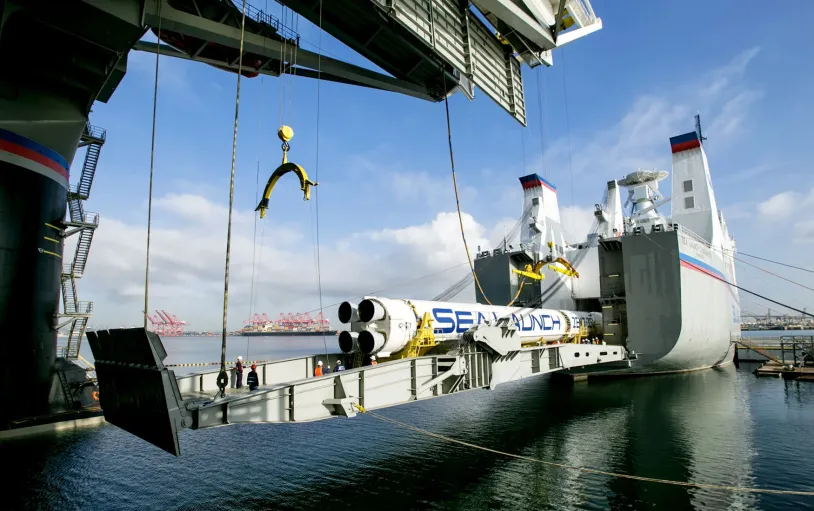The minimum amount of planned deals between structures related to Deripaska, Kerimov and Vekselberg, which are at risk of disruption due to sanctions, is estimated at $1 billion. The maximum amount exceeds $15 billion.
The new American sanctions are unprecedented in their harshness: U.S. residents have no right to do business with those on the list of the US Treasury Department (Specially Designated Nationals and Blocked Persons, SDN), and citizens of other countries also risk getting into trouble and put under sanctions for having business contacts with them. Americans and their partners must suspend all commercial relations with the defendants on the list (24 people and 15 companies) until June 5. However, an exception was made for Oleg Deripaska’s companies #50 – they must get rid of the securities and debt instruments of En+ Group, UC Rusal and GAZ Group even earlier – until May 7.
Deripaska’s fortune is rapidly shrinking, his former partner Glencore has turned away from him, foreigners are leaving the boards of his companies, and the commodity exchanges in London and New York are refusing to trade in UC Rusal’s aluminum. The mere mention of his name could derail a number of deals. In particular, under the threat may be the sale of the bank “Vozrozhdenie” brothers, Dmitry # 165 and Alexei Ananiev # 148, for which the Bank of Russia has set a deadline until June 4. The main contender for the bank remains the Bonum Capital fund, which is associated with Senator Suleiman Kerimov #28, also under sanctions. Kerimov is not only a client of Bonum Capital, as Forbes wrote. Former top manager of Nafta-Moskva Murat Aliyev owns 99% in the Russian division of Bonum Capital, and he also headed the board of directors of Vozrozhdeniye in March.
A bank with a problem
RBC has learned that Bonum Capital is also connected to Deripaska. A year ago, the fund bought from the billionaire potential financial claims against Mikhail Cherny, a former partner of the billionaire who was one of the founders of UC Rusal. At issue is a loan agreement between Deripaska and businessman Alexander Gliklad. Back in the 2000s, the main owner of UC Rusal through the Moquinon structure lent Gliklad $5 million at 10% per annum, which the latter needed for litigation with Cherny in New York. In 2015, the U.S. court sided with Glicklad. By early 2017, Chernoy had to pay his opponent more than $450 million under that ruling. But the agreement with Deripaska said that if Chernoy and Glicklad agreed to an out-of-court settlement, Moquinon had the right to pay the latter the amount of the settlement and take away his claim against Chernoy. The settlement agreement was reached. In February 2017, Moquinon, which is no longer formally affiliated with Deripaska and is itself suing Gliklad, sold the loan agreement to Bonum Capital.
Ties to Deripaska, as RBC points out, may prevent Bonum Capital from buying out Vozrozhdenie. The bank is currently capitalized at 8.33 billion rubles (about $133 million), which is about one-third of its capital. However, Kommersant’s source earlier said that the Ananyev brothers have a debt to Kerimov and the bank may be bought for a symbolic payment of 1 ruble. Then, the source said, the bank may be resold to a strategic investor. Sergei Varlamov, a partner at the Delovoy Farvater law firm, agrees that the deal to buy Vozrozhdeniye, if Kerimov is behind it, does look dubious: “And sanctions have nothing to do with it. The state regulator in the form of the Central Bank is not likely to give its consent, especially taking into account that the investigation of the Russian billionaire is still pending in France.
Conflicted nickel
Another deal is directly connected with Deripaska: the purchase together with Vladimir Potanin # 2 of Roman Abramovich # 17 and his partners’ share in Norilsk Nickel. After proceedings in London’s High Court in March, the parties agreed that they would buy approximately 4.2% of MMC from Abramovich. Potanin fulfilled his part of the deal by buying 2.1% of Norilsk Nickel. Based on the fact that he had previously offered the former governor of Chukotka $1.47 billion for the entire stake, the deal could have been worth $770 million. The market value of the 2% stake at the time of the agreement in London was $640 million, today it is $510 million. UC Rusal should be in that range, but sanctions made that deal impossible, according to two sources citing Bloomberg. The publication’s sources also said that negotiations for a larger deal – a buyout by Interros Potanin and UC Rusal of each other’s stakes (30.4% and 27.8%, respectively) in Nornickel – have stalled.
Earlier, the sum that each of the parties had to raise to end the long-standing conflict was estimated at $15 billion. Now these figures look unaffordable for UC Rusal, and Interros is banned from any transactions with Deripaska’s companies.
Sergey Varlamov assumes that Oleg Deripaska will most likely refuse to increase his stake in Norilsk Nickel through a buyout from Abramovich’s structures: “Even before the recent sanctions were imposed, UC Rusal’s acquisition of a block of shares looked doubtful. The attempt to block the sale of shares in favor of Interros through the High Court in London, where Vladimir Potanin’s position looks more convincing,” attests to that.
Fatal gold
The deal planned by Viktor Vekselberg’s Renova, also under sanctions, may also be in question. Last year it was reported that Vekselberg was ready to sell his mining assets to the gold mining company GV Gold (PJSC Vysochaishy). In February 2018, GV Gold received FAS approval to buy Renova’s platinum assets (100% of UralPlatinum Holding LLC and the management rights of Koryakgeoldobycha JSC) in Kamchatka. According to Kommersant’s sources, an agreement was also reached on the purchase of Kamchatka Gold. The potential amount of the deal was estimated at more than $500 million. It is not known whether the agreements between the partners remain in force. GV Gold did not reply to Forbes’ inquiry.
According to Varlamov from the law firm Delovoy Farvater, the deal with Renova sanctions on the contrary can accelerate – given that Vekselberg has long been looking for a buyer for gold mining assets (in December 2017, Renova sold 22.42% in Petropavlovsk, control of which she received as a result of a corporate conflict – Forbes).
According to sanctions expert Sergey Glandin, it is impossible to say that sanctioned individuals will not be able to conduct any transactions. However, according to him, the risks for intermediaries – lawyers and brokers who will accompany them – increase significantly.
“The sanctions are as simple as God’s day – these are the usual rules of U.S. law. The people on this list – individuals and legal entities are no longer allowed to do any transactions with these individuals, to touch these individuals, to help them circumvent sanctions,” the expert says. Therefore, the Europeans are very cautious towards those who are under sanctions; it is easier for them to refuse and explain everything by the sanctions list, he explains.
At the same time, Glandin recalls that soon after the “Countering America’s Enemies through Sanctions Act” (CAATSA, signed in the summer of 2017 by Donald Trump) was passed, European Commission President Jean-Claude Juncker made a statement, who clearly stated that the EU would not allow the US to “scapegoat” European companies with this law. “The European market took this as a kind of indulgence. So, everything depends on how the authorities of this or that state will protect their businessmen,” he concluded.
Speaking of Russian companies, if the clearing will go in dollars or through an American correspondent bank, there is a very great risk here. In this case, it would be easier for the parties to agree and make the payment through a Russian bank, notably Promsvyazbank, notes Glandin. It is PSB that the government may use to help UC Rusal with short-term liquidity, as Finance Minister Anton Siluanov said today.



